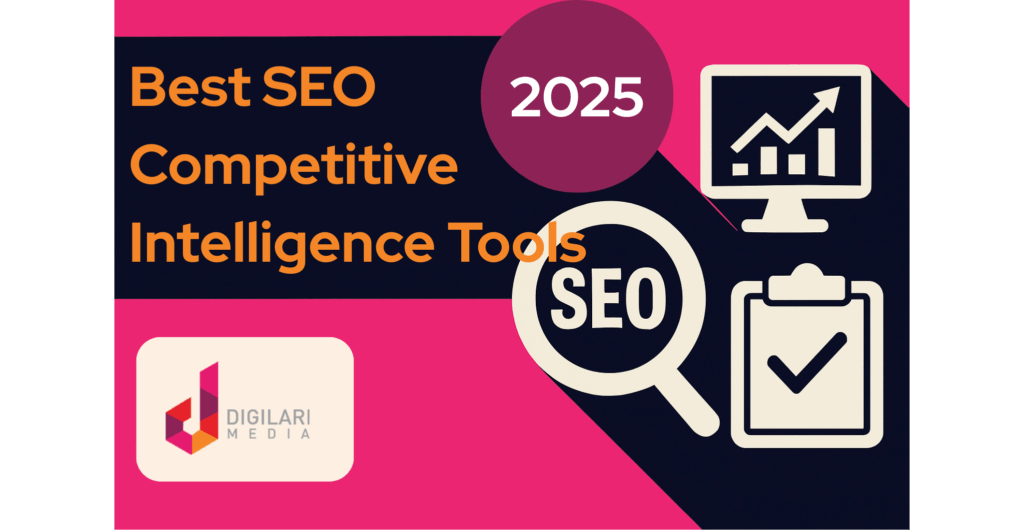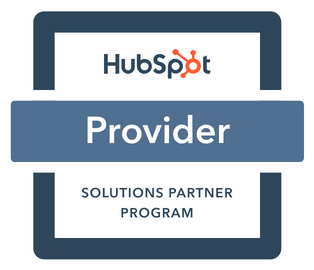Table of Contents
Unlock the strategies your competitors don’t want you to know.
If you’re not using SEO competitive intelligence in 2025, you’re flying blind. The digital marketing landscape is more dynamic than ever, and relying solely on your own data is no longer enough. To stay ahead, you need a clear view of your competitors’ keyword strategies, backlink sources, content gaps, and technical performance.
In this guide, we’ll break down exactly how to analyse your competitors’ SEO strategies using new SEO technologies and practical frameworks, so you can gain a measurable edge.
What is SEO Competitive Intelligence?
SEO competitive intelligence is the process of gathering and analysing data about your competitors’ search engine strategies. This includes:
- Keyword targeting
- Content performance
- Backlink acquisition
- Technical SEO signals
By understanding what’s working for others in your space, you can improve your own rankings, close performance gaps, and uncover untapped opportunities.
Why SEO Intelligence Matters in 2025
Search behaviour is evolving. With the rise of AI-powered search and generative search experiences, it’s more important than ever to:
-
- Align with user intent
-
- Understand your niche’s content landscape
-
- Optimise holistically, beyond just keywords
Tools and techniques that once gave you an edge have now become the baseline. Competitive intelligence helps you break through that ceiling.
Step-by-Step: How to Conduct SEO Competitive Intelligence
1. Identify Your Real SEO Competitors
These aren’t always your business rivals. Use tools like Ahrefs or Semrush to:
-
- Search your target keywords
-
- Identify which domains consistently outrank you
-
- Include both direct and indirect competitors
The first step in a competitive intelligence strategy is pinpointing who your true SEO competitors are. When we analysed the keyword “PPC management Brisbane”, we noticed that Domain Bird and Anchor Digital were ranking above Digilari in the SERPs. These aren’t necessarily our direct service competitors, but they dominate the same digital real estate we’re targeting — making them high-priority SEO rivals.
2. Keyword Gap Analysis
Using tools like Ahrefs or SpyFu:
-
- Compare your domain to competitors
-
- Identify high-performing keywords they rank for but you don’t
-
- Prioritise low-difficulty, high-intent terms
we used Ahrefs’ Competitive Analysis tool to compare Digilari’s domain against these competitors. The results revealed several high-value keywords, like “content marketing Brisbane”, that competitors rank well for — but Digilari does not. This insight helps guide our content and SEO strategy to close those gaps.
3. Content Audit & Intent Matching
Examine your competitors’ top-ranking pages using tools like the Ahrefs Site explorer:
-
- What formats work (how-tos, comparisons, listicles)?
-
- What intent are they addressing (informational, transactional)?
-
- How often are they updating content?
Focusing on Anchor Digital, we reviewed their top-ranking pages (excluding the homepage) using Ahrefs’ Site Explorer. Aside from service pages, we discovered they publish informative articles on SEO and digital marketing trends that perform well in organic search. This highlights the importance of pairing service content with educational resources that match a range of user intents.
Tip: Use Ahrefs’ “Identify Search Intent” feature to map your strategy accordingly.
4. Backlink Profile Analysis
Check where their authority is coming from using backlink analysis tools such as Ahrefs’ “Best By Links”:
-
- Who’s linking to them?
-
- What content gets the most backlinks?
-
- Any recurring PR or guest blogging sites?
Using Ahrefs’ “Best By Links” report, we observed that Anchor Digital’s homepage, service pages, and even the contact page are among their most linked assets. This indicates these pages contribute significantly to their domain authority and overall ranking power — and reinforces the value of strategic backlink acquisition to your key landing pages.
Tools: Ahrefs, Moz, Majestic SEO.
5. Technical SEO Comparison
Use GTmetrix or Google PageSpeed Insights:
-
- Compare load speeds
-
- Mobile responsiveness
-
- Indexability
-
- Site architecture
Even subtle advantages in technical health can shift rankings.
Best 5 Competitive Intelligence Tools for SEO
Here are the top tools to help you gather and apply competitive insights:
| Tool | Use Case | Pricing (approx.) | Pros | Cons |
| Semrush | All-in-one SEO & PPC tracking | From $139.95/month | Versatile suite, great UI, robust reporting | Expensive for small teams, learning curve |
| Ahrefs | Backlink, content, and keyword gap analysis | From $99/month | Chrome extension support, content explorer, fast UI | Limited PPC & SMM data |
| SpyFu | PPC/SEO history & competitor intel | From $39/month | Affordable, good for historical PPC data | Limited backlink analysis |
| Similarweb | Market-level audience data | Custom pricing | Strong market insights, traffic source breakdowns | Less granular SEO data, expensive enterprise plans |
| Google Tools | PageSpeed, Keyword Planner | Free | Free, reliable, ideal for foundational SEO checks | Limited depth, no competitive benchmarking |
Benefits of Ongoing SEO Competitive Analysis
-
- Spot and close keyword gaps
-
- Optimise your backlink outreach
-
- Improve content performance
-
- Benchmark technical SEO
-
- Stay agile and aware of SERP shifts
Final Thoughts
SEO competitive intelligence is no longer optional. In a landscape shaped by AI, SERP volatility, and shifting user behaviour, you need every insight possible to compete. At Digilari, we don’t just talk about it — we do it.
Our team of specialists across SEO, PPC, and broader digital marketing domains harness industry-leading tools like Ahrefs, SEMrush, and Google tools to develop data-led strategies that are grounded in real competitor intelligence. From keyword gap analyses to backlink benchmarking and content audits, we ensure every insight translates into action.
Looking to build your own strategy? Explore our fully customisable digital marketing service menu, where you can tailor solutions to your specific business needs — whether you’re just starting out or scaling up. Read our 2025 Digital Marketing Pricing Guide or book a discovery meeting to discover how Digilari can help you turn intelligence into impact.




